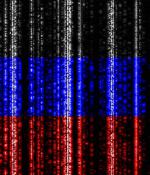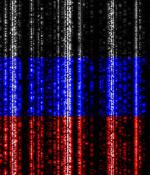Security News

Russia's invasion of Ukraine has cleared the way for a new battlefront with the West in cyberspace, with experts warning of an escalation in cyberwarfare. "We expect to see that probably beyond just Ukraine, disinformation to target Western audiences, cyberespionage against key NATO members, as Russia tries to understand the next moves when it comes to sanctions or other steps that Western governments will play," Luke McNamara, principal analyst at cybersecurity consulting firm Mandiant, told The Register.

Cybersecurity firms ESET and Broadcom's Symantec said they discovered a new data wiper malware used in fresh attacks against hundreds of machines in Ukraine, as Russian forces formally launched a full-scale military operation against the country. The Slovak company dubbed the wiper "HermeticWiper", with one of the malware samples compiled on December 28, 2021, implying that preparations for the attacks may have been underway for nearly two months.

IBM's infosec division says the UK was one of the most targeted countries in Europe for cyberattacks last year. The 12-strong Lithuanian-led team - including members from Estonia, the Netherlands, Lithuania, Croatia, Romania and Poland - is visiting the Ukraine to help it defend against Russian cyberattacks both remotely and on-site in the country, an EU spokesman told the BBC. Separately, this afternoon another series of outages appeared to hit various Ukrainian government websites.

A two-year campaign by state-sponsored Russian entities to siphon information from US defense contractors worked, it is claimed. CISA's announcement and an accompanying report [PDF] state that it, the FBI, and the NSA have all spotted "Regular targeting" of contractors that serve the US Department of Defense, intelligence agencies, and all branches of the US military other than the Coast Guard.

A special law enforcement operation undertaken by Russia has led to the seizure and shutdown of four online bazaars that specialized in the theft and sales of stolen credit cards, as the government continues to take active measures against harboring cybercriminals on its territory. Ferum Shop, active since October 2013, made as much as $256 million in Bitcoin from stolen card sales, accounting for nearly 17% of the stolen credit card market.

Russia arrested six people today, allegedly part of a hacking group involved in the theft and selling of stolen credit cards. Russian media reports that the arrests come at the request of investigators from the Ministry of Internal Affairs of the Russian Federation.

Russia arrested six people today, allegedly part of a hacking group that was involved in the theft and selling of stolen credit cards. Russian media reports that the arrests come at the request of investigators from the Ministry of Internal Affairs of the Russian Federation.

A Russian naval exercise in the Atlantic, near several submarine cables between Britain, France and the US, is more likely to be sabre-rattling than an attempt to sabotage critical communication links. In its original location the exercise caught the eye of many more people - because it sat right on top of two existing submarine cables and a third due to be commissioned in the next couple of months.

The Russian Federal Security Service and law enforcement have arrested Andrey Sergeevich Novak, the alleged leader of the Infraud Organization, a hacker group that caused losses of more than $560 million in seven years of activity.The Infraud Organization was involved in acquiring and trading of stolen payment card data and identities on the Infraud carding portal.

Russian news agency Tass reported over the weekend that the "Purported founder" of a notorious cybercrime group known as Infraud Organisation has been arrested. As a side-effect of the American indictment, 13 people were arrested in seven different countries: Australia, France, Italy, Kosovo, Serbia, the UK and the US. The DOJ claimed to have evidence at the time that Infraud Org, operating under the unrepentant motto In Fraud We Trust, was responsible for more than $500 million in actual losses, and more than $2 billion in what law enforcement referred to as "Intended losses".